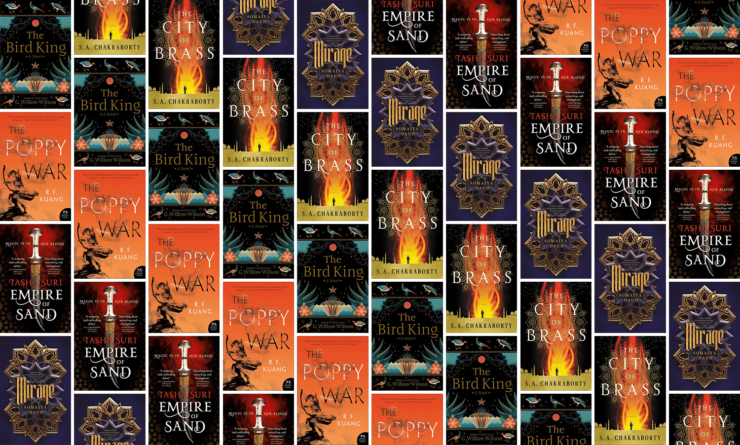Recently, I put my mind to the question of whose histories are used to animate storytelling in science fiction and fantasy. What else might exist as a source of inspiration in this genre, beyond Nordic sagas or Christian mythology? What vistas are opened up when writers of color, or writers from marginalized communities, whose histories are so often neglected, imagine new worlds based on cultures, histories or belief systems they know with vivid immediacy?
Do writers from these communities turn to science fiction and fantasy partly because there are very few spaces where they see their stories told in ways that seem authentic and familiar? These five books are by writers who aren’t just writing their resistance: they’re writing their worlds into being.
The City of Brass by S. A. Chakraborty
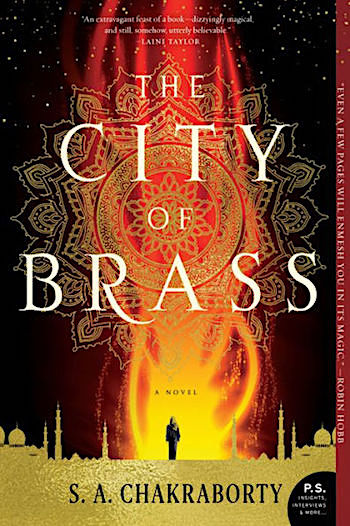
In The City of Brass, a young con artist named Nahri haunts the streets of eighteenth-century Cairo looking for easy marks, cheating Ottoman nobles with her sleight-of-hand tricks and illusions. Unaware that she’s gifted with real magic, Nahri unwittingly summons a djinn warrior who takes her to Daevabad, the mythical City of Brass, where she is drawn into court intrigues that she must learn to navigate to survive. Nahri quickly discovers that her gifts have a deeper meaning than she imagined. She struggles to determine her loyalties, as much as she struggles to discover where she truly belongs. Magic abounds in the setting, but also in the creation of Chakraborty’s world, which she describes as rooted in her love for Islamic history: “A large dose of inspiration, particularly in regards to the book’s politics and social system, came from the era of the Abbasid Caliphate, which was the period I wanted to study further.” Islamic customs and the Arabic language form a subtle yet poignant background to the story, one rarely seen in fantasy, adding richness and depth to a fascinating world that depicts the secret lives of djinns.
Mirage by Somaiya Daud
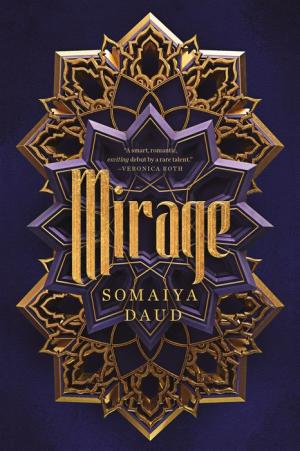
To bring into being the seductive, enthralling world of Mirage, a world governed by the Vathek empire and its ruthless subjugation of its colonies, Somaiya Daud closely studied North African folk tales and poetry written by women during the 11th-13th centuries, particularly those that centered on medieval Muslim Iberia, with a focus on Arabic-speaking women. Amani, an 18-year-old poet who dreams of freedom from occupation, carries these rich traditions forward. The world of Mirage is one where poetic narratives blend seamlessly with space travel and advanced technology, as Amani is kidnapped and forced to act as a body double for the half-Vathek princess Maram. She is torn from her family, uncertain of their fate under their pitiless Vathek oppressors, and forced to bend to the whims of a princess who has only been taught cruelty. Though she has every right to be terrified, Amani builds relationships that are sensitive to the dynamic between the occupier and the occupied. We see a young woman from an underclass up against an indomitable power, who must draw on her pride in herself and her traditions to survive. These traditions are depicted with great sensitivity and artistry, and they give a rare power to long-neglected histories, inviting them into our collective consciousness. What is especially convincing about Mirage is that it depicts a heroine whose history, language, and faith serve to empower rather than oppress her.
The Poppy War by R. F. Kuang
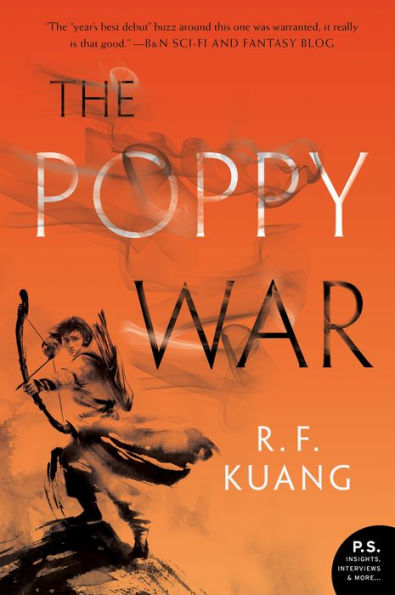
This is an unforgettable book, the kind of book that arrives once in a generation and blazes an indelible trail, shaping everything that comes after. The scope of the history encompassed, the sheer scale of myth and legend, the precision of the author’s imagination coupled with her gift for language are necessary for a novel of such fierce originality and grandeur. The Poppy War invokes the history of 20th century China with startling boldness, an ambition distilled into the character of a poor, dark-skinned, outcast orphan who must survive in a world hostile to her existence, through sheer self-belief and grit. Rin bitterly struggles through the Nikara Empire’s exclusive military academy Sinegard, impelled by the need to become something, to have something, in a world determined to deny her. She soon discovers that she possesses the gifts of a shamanic Phoenix with the ability to determine who should live or die, in an empire faced with devastating war. The massacre at Golyn Niis parallels the Rape of Nanking (Nanjing), the costs of war made agonizingly explicit to a girl who was so recently a student. This is a coming-of-age story unlike any other, deriving from the grand canvas of a history that should be much more familiar to a Western audience.
Empire of Sand by Tasha Suri
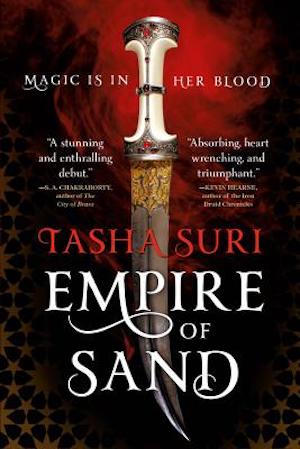
In Tasha Suri’s remarkable debut, the writing is richly evocative, the world delicately drawn—a place of legends and hard devotional truths, told from the perspective of Mehr, a noblewoman, who exists simultaneously as a person of high status and no status at all. As the illegitimate daughter of the governor of Jah Irinah, Mehr is used to luxury, sheltered from the eyes of men, allowed to make her own choice in marriage. But she is also the descendant of an Amrithi mother, a tribe of outcasts whose only value to the empire lies in the magic of their blood, and in the rites they dance. Once her gifts at controlling the dreamfire become known to the Maha, a powerful mystic, she is coerced into marriage with a fellow Amrithi dancer. Mehr is as resolved and determined in who she is at her father’s court, as she becomes among the mystics—her act of claiming her sacred rites for herself is a means of defiance against those who seek to control her. All the more compelling in the midst of this, is that Mehr develops a relationship of equals with her Amrithi husband; Amun is compassionate and tender despite the mystics’ efforts to turn him into a monster. As the author says of the tales of the Mughal Empire that inspired her: “It was all opulence and colour and sword fights and romance. I wanted to capture a bit of that fantasy, that spinning of history into something compelling but not entirely real: too bright, too rich, too lush. I wanted to take that magic and actually write about magic.”
The Bird King by G. Willow Wilson
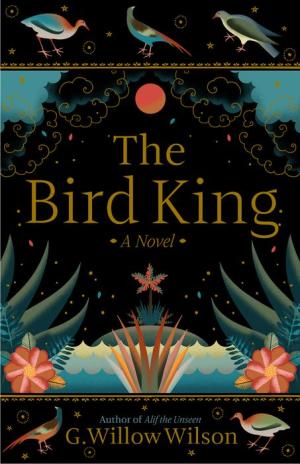
Set in 14th century Iberia, The Bird King is a fable, steeped in magical realism. Yet despite its enchanting otherworldly trappings, it is primarily a novel of ideas. It grapples with who we are, how we love, why we worship, and why a world of co-existence—perhaps even of Convivencia—seems so far beyond our reach.
In prose so vivid and original that one can only read it with envy, The Bird King tells the story of Fatima, a Circassian concubine, mistress of the last Emir of Granada, and Hassan, the only person she loves in the world, a mapmaker whose homosexuality imperils his existence under the Inquisition. As the fall of Granada comes to pass, Fatima and Hassan are guided only by Hassan’s ability to make maps out of myths—what he draws comes to pass, a sorcerous talent that sharpens the eye of the Inquisition, and places a target on his back. Terrifying jinn, stalwart Christian knights, wayward monks, and others beguiling creatures are encountered along the route of Fatima and Hassan’s escape to the island of the Bird King. But this is really Fatima’s story—the story of a young woman whose greatest desire is the freedom to make her own choice. Without the Emir’s power to protect her, Fatima has nothing—is nothing, yet through the force of her convictions, she makes a place and a world for herself.
Originally published in November 2018.
Buy the Book
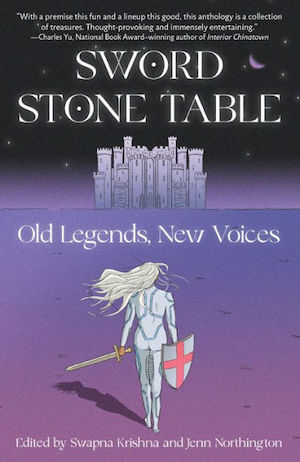

Sword Stone Table
Ausma Zehanat Khan holds a Ph.D. in International Human Rights Law with a specialization in military intervention and war crimes in the Balkans. She is a former adjunct law professor and was Editor-in-Chief of Muslim Girl magazine, the first magazine targeted to young Muslim women, and is the award-winning author of The Unquiet Dead and the epic fantasy series The Khorasan Archives. She also has the short story, “The Once and Future Qadi“, in the Sword Stone Table anthology, and a new crime series forthcoming with Minotaur Books in 2022.










